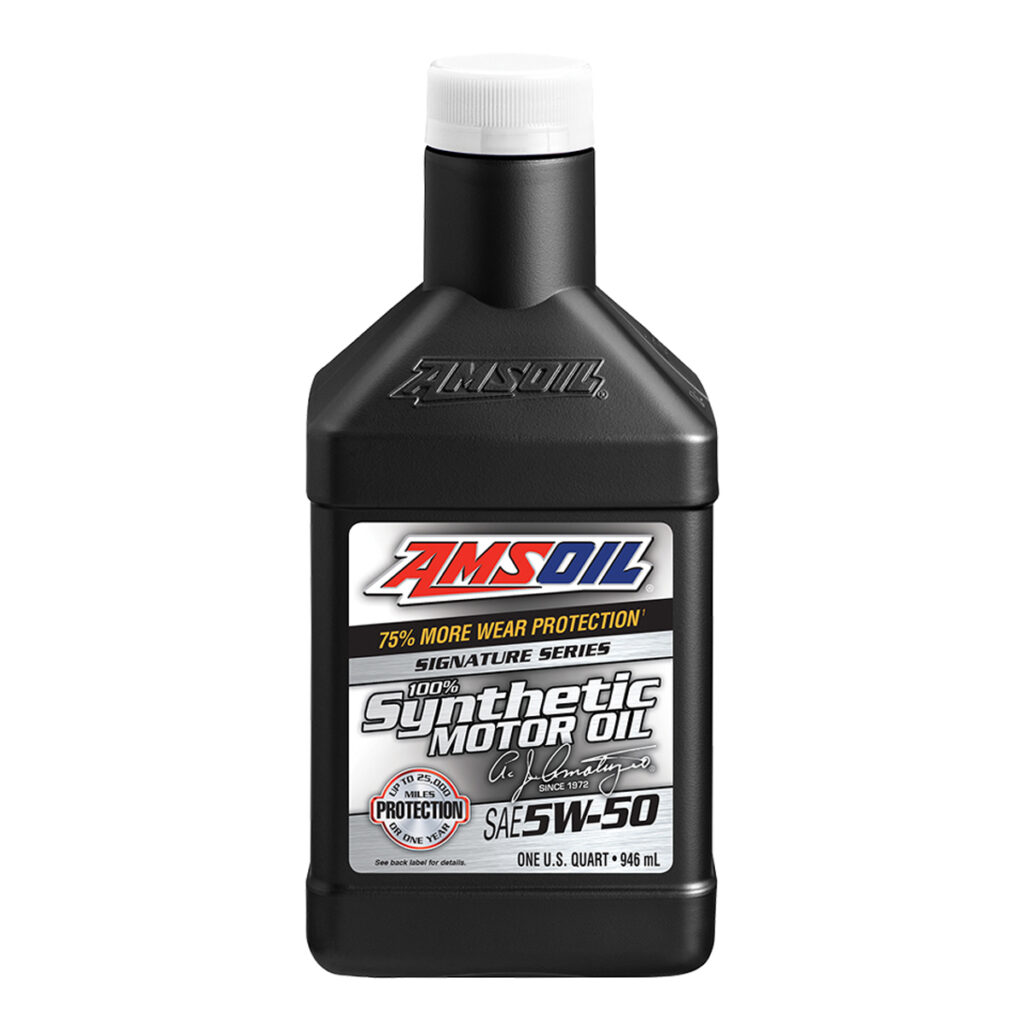Motor oil is an essential component of any engine, and choosing the right oil can have a significant impact on its performance and longevity. In the world of high-performance synthetic motor oils, Motul and Amsoil are two of the most respected brands. Both companies have a long history of producing high-quality synthetic motor oils that are designed to provide superior protection and performance in a wide range of driving conditions.
In this article, we will compare Motul and Amsoil synthetic motor oils to help you decide which one is the better option for your engine. By the end of this article, you should have a better understanding of the differences between Motul and Amsoil synthetic motor oils and be able to make an informed decision on which one to choose for your engine.
Overview of Motul Gear Oil:
Motul is a well-known brand of automotive lubricants and related products, including gear oils. Motul gear oil is designed to provide optimum performance and protection for manual transmissions, differentials, and other gear systems in various types of vehicles, from cars and trucks to motorcycles and racing vehicles.
Motul gear oil is formulated with advanced synthetic base oils and additives to provide excellent thermal stability, resistance to wear, and protection against rust and corrosion. The brand offers a wide range of gear oils with different viscosities and performance ratings to meet the needs of different vehicles and operating conditions.
Motul gear oil is available in various packaging options, including bottles, cans, and drums, and can be easily purchased from online and offline automotive stores and authorized dealers. The brand also provides technical support and recommendations for choosing the right gear oil for specific applications and vehicles.

Overview of Amsoil Gear Oil:
Amsoil Gear Oil is a synthetic lubricant designed to protect gears and bearings in heavy-duty applications. It is formulated to provide superior protection against wear, extreme pressure, and heat, ensuring longer equipment life and better performance.
Amsoil Gear Oil is available in several different formulations to meet the specific needs of different types of equipment. For example, Amsoil’s Synthetic Gear Lube is designed for use in passenger cars, light-duty trucks, and SUVs, while the Severe Gear Synthetic Gear Lube is designed for use in heavy-duty and off-road applications.
The Amsoil Gear Oil line also includes transmission fluids, hydraulic fluids, and other lubricants designed to meet the needs of a wide range of industrial, commercial, and automotive applications.
Overall, Amsoil Gear Oil is a high-quality synthetic lubricant that provides superior protection and performance for a wide range of applications.

A Comparison between Motul and Amsoil Motorcycle Oil:
Here is a comparison based on some key factors that can help in making an informed decision:
Performance:
Motul motorcycle oil is known for its synthetic blend technology that delivers superior performance in extreme conditions. Motul offers a wide range of motorcycle oils that cater to different types of bikes, engines, and usage requirements. Motul motorcycle oil is designed to deliver exceptional engine protection, smooth shifting, and reduced engine wear. Some of the benefits of using Motul motorcycle oil include improved engine performance, reduced engine deposits, and better fuel economy.
Amsoil motorcycle oil, on the other hand, is formulated with advanced synthetic technology that provides superior protection and performance. Amsoil motorcycle oil is designed to offer maximum engine protection, enhanced performance, and extended drain intervals. Amsoil motorcycle oil is also formulated with anti-wear additives that help prevent engine wear, reduce oil consumption, and extend engine life. Amsoil motorcycle oil is ideal for high-performance bikes and riders who demand the best in engine protection and performance.
Quality:
Both brands use high-quality synthetic base oils in their motorcycle oils, which provide better lubrication and protection than conventional oils. Motul uses a mix of synthetic esters and mineral oils in their motorcycle oils, while Amsoil uses pure synthetic base oil.
Motul and Amsoil both use advanced additive packages in their motorcycle oils, which help improve performance, reduce wear and tear, and extend the life of the engine. Amsoil uses a unique anti-wear additive called Zinc dialkyldithiophosphate (ZDDP) in their motorcycle oils, which is particularly beneficial for older bikes with flat-tappet camshafts. Motul also uses a high-performance additive package, but the specific ingredients are not disclosed.
Both Motul and Amsoil produce high-quality motorcycle oils that provide excellent lubrication and protection for engines. The choice between the two ultimately depends on your specific needs, preferences, and budget.
Longevity:
When it comes to longevity, both brands are designed to last longer than conventional mineral-based oils. The synthetic base oils used in their formulations provide better resistance to breakdown, oxidation, and sludge formation, which can prolong the oil’s lifespan.
In terms of actual numbers, Motul claims that its synthetic motorcycle oil can last up to 12,000 miles or 12 months, whichever comes first. On the other hand, Amsoil’s synthetic motorcycle oil can last up to 10,000 miles or 12 months, depending on the driving conditions.
Both brands recommend following the manufacturer’s recommended oil change intervals, and some riders may choose to extend these intervals based on their driving habits and conditions.

Viscosity:
In the case of motorcycle oil, viscosity is crucial because it determines how well the oil can lubricate engine components, such as the crankshaft and bearings, while also dissipating heat.
Both Motul and Amsoil offer a range of motorcycle oils that are designed to meet different viscosity requirements for various motorcycle engines.
Motul motorcycle oil features a wide range of viscosity ratings, from 0W-20 to 20W-50, and includes both mineral and synthetic blends. The 0W-20 rating indicates that the oil has a low viscosity at cold temperatures, which makes it easier to start the engine during cold weather. On the other hand, the 20W-50 rating is suitable for use in high-temperature environments and provides better protection against wear and tear.
Amsoil also offers a wide range of viscosity ratings for its motorcycle oils, ranging from 0W-20 to 20W-50, and includes synthetic oils that are designed to perform better in high-performance engines. The Amsoil 10W-40 synthetic motorcycle oil, for instance, is specifically formulated to deliver high performance and protection in four-stroke motorcycles and other power sports equipment.
Compatibility:
In general, Motul motorcycle oils are compatible with a wide range of motorcycles, including those with wet clutches, and are suitable for use in both two-stroke and four-stroke engines. They are also designed to work with different types of fuels, including gasoline and ethanol blends.
On the other hand, Amsoil motorcycle oils are also designed for use in a variety of motorcycles, but they may not be compatible with some wet clutch systems. They are formulated to offer high-performance protection for both air-cooled and liquid-cooled engines and can be used with gasoline, diesel, and ethanol fuels.
Price:
In general, however, Amsoil tends to be more expensive than Motul. This is because Amsoil places a premium on the quality of its oils and uses high-quality synthetic base stocks and advanced additive packages, which can drive up the cost of the product.
On the other hand, Motul offers a range of products at various price points, making it a more accessible brand for those on a budget.
Frequently Asked Questions (FAQs):
Is Amsoil really the best oil?
Amsoil is considered one of the best synthetic motor oils on the market. It has a good reputation for providing long-lasting protection and improved performance for engines. However, the best oil for a particular vehicle depends on several factors such as the manufacturer’s recommendation, driving conditions, and personal preference.
Does Amsoil last longer than conventional motor oil?
Yes, Amsoil synthetic motor oil typically lasts longer than conventional motor oil. Synthetic motor oils like Amsoil are engineered to withstand high temperatures, resist oxidation, and maintain their lubricating properties over a longer period of time than conventional oils.
Why Motul is the best oil?
Motul oil is known for its advanced synthetic technology that provides superior protection against wear and tear, reduces engine deposits, and maintains engine performance even under extreme conditions. The company uses high-quality base oils and advanced additives to create oils that meet or exceed industry standards for performance and protection.
Conclusion:
In conclusion, both Motul and Amsoil are top-quality lubricant brands with a strong reputation in the market. Choosing the right one depends on your specific needs and preferences.
Motul is known for its high-performance lubricants that are designed for racing and other extreme conditions. Their products are particularly well-suited for high-performance engines that operate under heavy loads and extreme temperatures.
On the other hand, Amsoil is a brand that offers a wide range of synthetic lubricants that are designed to provide maximum protection and performance. Their products are suitable for a broad range of engines, from cars to heavy-duty trucks and industrial machinery.
Ultimately, the choice between Motul and Amsoil comes down to the specific requirements of your engine, as well as your personal preferences. Both brands offer high-quality lubricants that are designed to provide maximum protection and performance, and either one can be a good choice depending on your needs.

